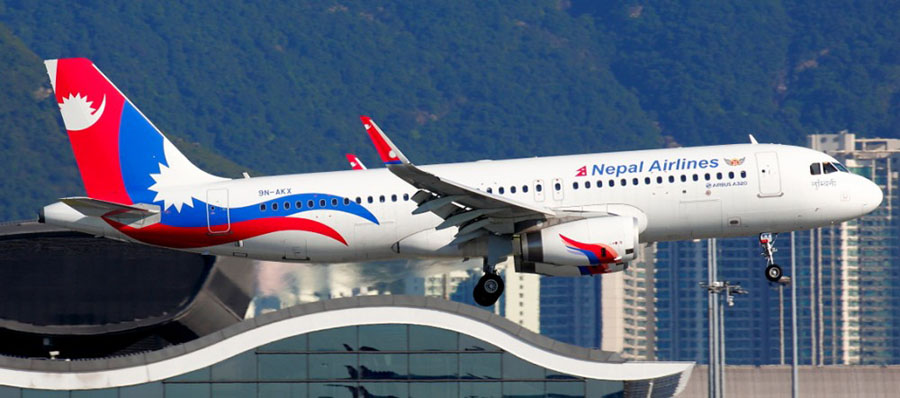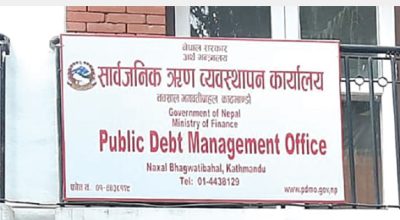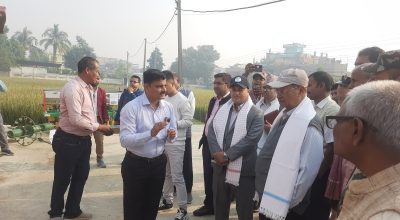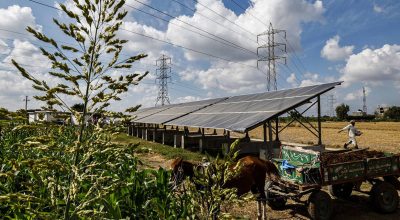
– CB Adhikari/RSS
Kathmandu: The government has brought a new aviation policy after nearly one and a half decade. The policy is in line with the global dimension of aviation technology in the changing scenario.
The National Aviation Policy takes into consideration the safety and security of the aviation sector as well as maximum use of modern technology and equipment. It also has provisions for the sustainability of the aviation industry.
The task force formed to prepare the new aviation policy has recently submitted a draft of the ‘National Aviation Policy, 2076’ to the Culture, Tourism and Civil Aviation Minister Yogesh Kumar Bhattarai. Former Tourism Secretary Yagya Prasad Gautam is the coordinator of the seven-member task force.
The National Aviation Policy, 2050 was revised after 13 years and was implemented in the form of National Aviation Policy, 2063 before this. The draft of a new policy has been prepared nearly after one and a half decade now.
Task force coordinator Gautam said the new policy takes into account the situation of the world’s aviation sector and Nepal’s needs in this context. The policy has kept in mind the international aviation standards also. It sets out objectives as contributing to the social and economic development of the country by promoting the civil aviation sector with the participation of the private sector.
The policy states that civil aviation sector would be made secure, reliable, competitive, systematic, affordable and credible. It envisages making the country the regional and international civil aviation hub by making the aviation services systematized using modern technology and equipment.
Likewise, the new policy states that the existing open sky policy would be promoted taking into account the national interest and provisions would be put in place so that the foreign airplanes on international flights would be able to make the maximum use of Nepali air space.
Individuals to be allowed to keep airplane
The new aviation policy also has provisions allowing an individual to keep private plane for private use. The individual keeping private plane should follow the aviation safety and flight safety conditions. This provision was not included in the National Aviation Policy, 2063.
It is stated in the new policy that the human resources required by the aviation sector would be trained and produced within the country itself in collaboration with the private sector.
Mandatory to have three aircraft
As per the new policy, an airlines company will be allowed to operate flights only when the company has owned at least three aircraft. It is stated that international and domestic airlines company established with the objective of operating regular or chartered flights should have made arrangements for operation of at least three aircraft right from the time of acquiring the permission.
Similarly, the Civil Aviation Authority of Nepal (CAAN) can auction off any machine, engine or equipment which are lying idle for more than two years if the side concerned did not remove the same.
The policy states that the aircraft accident investigation would be made objective and efficient. An independent permanent air accident investigation commission would be set up for this purpose.
It states that the aviation safety standard would be maintained at a level above the world’s average standard by adhering to the standards determined by the International Civil Aviation Organisation (ICAO).
The air traffic control, flight information service and advisory service would be made more effective and efficient synchronizing the same with technology.
The policy stipulates that registration of a new airlines company should be done only on the basis of needs assessment, market demand and rigorous analysis of investment and returns. Similarly, the option of merger or acquisition is open for airlines companies.
Provisions have been made for giving special concession to an airlines company if it purchases aircraft which are manufactured less than five years. Procuring an aircraft with 35,000 ‘pressurized cycle’ has been banned in the new policy. Before, the provision allowed buying of aircraft 15 years old and with 45,000 pressurized cycle. In aviation parlance, one cycle is comprises the period when an aircraft takes off and lands. It is said that even 20 years old aircraft are purchased by airlines companies at present.
Similarly, the policy emphasizes on promoting the private sector, sustainability and provision of quality, safe and efficient service in a smooth manner.
Likewise, the policy has a provision of providing discount on income tax as per the existing laws to an individual or a institution making an investment of Rs 2 billion in the aviation sector.
The airlines company should have an issued capital of Rs 500 million excluding the deposit for operating international flights. The government shall determine the deposit amount. The present requirement is Rs 500 million for operating international flights and Rs 2 million for domestic flights. As per the new provision the investment should be now Rs 2 billion including the operational and issued capital.
Gautam also said the policy has stressed on making both technical and human aspects sound to reduce air accidents.
—
















